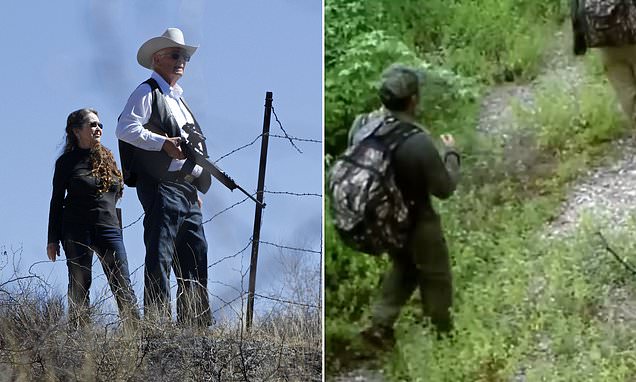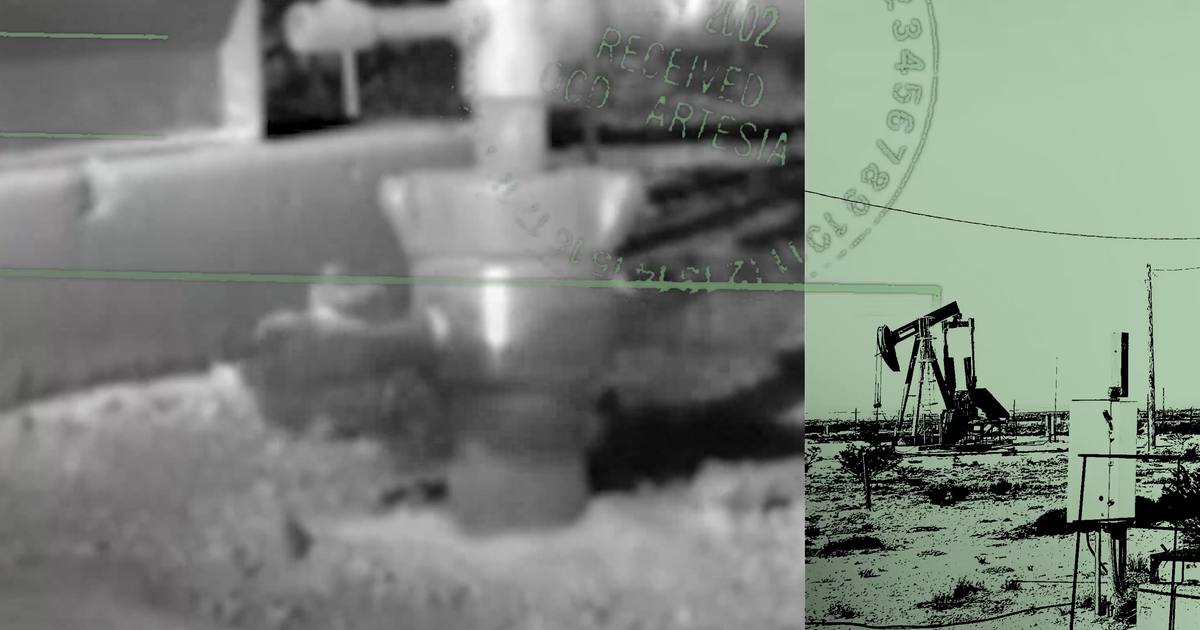The elderly Arizona rancher on the frontline of migrant crisis: The cartel watches him in the dark with scoped rifles and night vision goggles - but at 84, he's
- Jim Chilton runs an Arizona ranch three times the size of Manhattan which is crossed by thousands of migrants to enter the United States illegally each month
- He said crossings have 'intensified immensely' over the last three years
- For four generations, Jim Chilton's family of cattle ranchers has worked the vast lands of southern Arizona which straddle the Mexico border, keeping the cowboy tradition alive.
But after nearly 150 years, their business – and way of life – is under threat.
The migrant crisis which has gripped America has turned the Chilton ranch into a perilous corridor used by hundreds, sometimes thousands, of people each month to cross into the country illegally.
Patrols by Jim, 84, across this ranch in Arivaca, Arizona, which is three times the size of Manhattan are no longer focused solely on traditional duties: tracking missing cattle, tending the land and maintaining infrastructure.
The border crisis has threatened the Chiltons' business and cowboy traditions.
Today, he must also fill the role of look-out and rescuer of migrants who collapse, dehydrated and exhausted, as they trek across these remote and unforgiving lands.
And, most worryingly, his work now is conducted under the gaze of armed cartel members – equipped with scoped rifles and night vision goggles – who traffic the people across Chilton land and into America.
'We know we're always being watched,' said Jim of the cartel patrols which survey his land before sending migrants across the border.
'The problem in our area in the last three years has intensified immensely,' added Jim, who lives with his wife Sue, 81, in a circular house on the ranch which also serves as a 360-degree lookout.
Around 250,000 migrants crossed the southern border illegally in December alone. Across the whole of 2023, there were more than 2.5 million encounters of migrants at the US-Mexico border, according to official data.
The borderlands of Arizona have become a hotspot for crossings.
The growing problem has compelled the
Chiltons to testify before Congress about its impact on their lands. Jim also campaigned in support of Donald Trump's border wall.
The Chiltons, whose home is nine miles from the Mexico border, have discovered 150 smuggling trails on their land in recent years, along with evidence of drug smuggling.
They have installed a network of security cameras to monitor the ranch - which regularly picks up large group of migrants who have recently entered the US - and have also offered to arm their team of five working cowboys.
Jim takes a handgun with him during rides onto the land - partly for protection from members of the Sinaloa cartel, one of the world's most dangerous criminal gangs, who control smuggling in the region.
Several years ago, a cowboy who worked for Jim was ambushed by smugglers who forced him to deliver 44 pounds of methamphetamine for them.
He also carries a satellite phone because much of the land has little to no phone signal, a factor which also adds to the dangers for those people who attempt to cross on foot.
Jim has grown used to discovering the debris left behind by the groups of migrants which cross the land. Empty water bottles, discarded clothing and shoes litter the trails which cut through the landscape.
He also frequently encounters human victims of the crisis, including sick children crying out for help and dehydrated adults who have been exhausted by their journey into America. The Chiltons have installed several water fountains across the land to try and help the migrants who cross it.
'Just when you think you've seen everything, this place still shocks you,' Jim told the
New York Times during a ride out in January as they encountered a makeshift camp with dozens of migrants who were traversing his land.
Brian Best, 64, a volunteer aid worker from Tucson, was delivering help to the group.
Best said that just hours earlier, he had seen cartel guides lead more than 170 people through a tiny, three foot-by-three foot opening in a stretch of border wall which separates the Chilton ranch from Mexico.
He added that he was 'almost getting used to' these chaotic scenes after several years as a volunteer for the Tucson Samaritans, delivering water, first aid and clothing. Migrants arrive here from all over the world, he said.
'This place breaks your heart every day,' Best said. 'They're exhausted. They're sick. They're confused. They're cold, and they just have to wait. How can this be our system.'
Jim added: 'If I had been born in one of these places, I might be sleeping out here, too.'
With Sue, he has campaigned for years for measures that will secure the border while also creating legal pathways to asylum.
'We're a nation of the rule of law. We need to stop people just having the idea that they can walk into the United States,' Jim recently told
Fox News.
'They're entering our country unseen, and they could be terrorists.
'I'm really concerned. If our adversaries around the world want to bring terrorists into our country, this is a route.'
The Chilton family first arrived in Arizona in 1888 and have spent four generations working ranches in the state.
Jim and Sue have considered selling the current ranch and moving to Tucson, or closer to their grandchildren in Los Angeles, because of the new and unprecedented set of issues.
But they have persisted here, in spite of their latest challenge, and maintain hope that a solution can be found which protects their land - and their way of life.
'Secure the international boundary and develop a program to bring people into this country legally,' Jim said.
For four generations, Jim Chilton's family has worked the lands of Arizona which straddle the Mexico border. But after nearly 150 years, their business - and way of life - is under threat.

www.dailymail.co.uk




